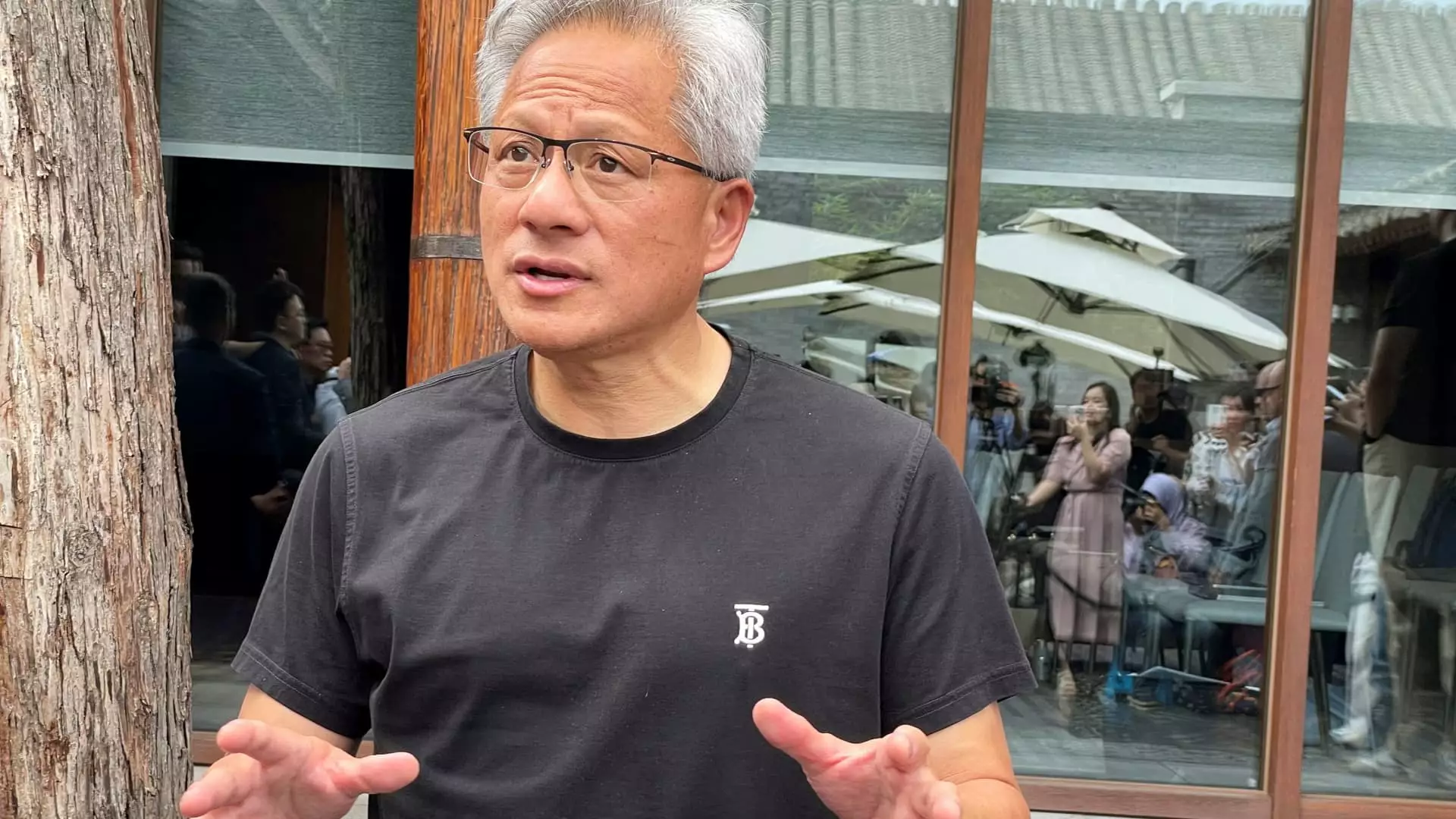In an era where technological supremacy is increasingly intertwined with national security and economic power, the controversy surrounding Nvidia’s data center GPUs underscores a profound dilemma. The longstanding trust in innovation is being challenged not just by competitors but also by geopolitical forces that threaten to undermine the very foundations of cybersecurity and corporate integrity. Nvidia’s vehement denial of embedded “kill switches” isn’t merely about product security; it’s a statement about the importance of maintaining independence and trust in a globalized market increasingly fraught with suspicion and interference.
At the heart of this debate lies the accusation from China, suggesting that Nvidia’s chips could be covertly manipulated—equipped with backdoors or kill switches that could be exploited to deactivate or sabotage systems remotely. While the company refutes these claims, the incident reveals the fragile balance multinational corporations must strike in navigating geopolitical tensions. It’s not just about the hardware; it’s about protecting the integrity of digital infrastructure that underpins commerce, security, and innovation. Any insinuation that a chip could harbor such vulnerabilities, whether true or not, causes ripple effects that threaten to erode confidence in American technology firms.
Trust in Technology: The Bedrock of Global Security
The broader concern is the erosion of trust in critical infrastructure components. Governments demand transparency and security assurances, especially for technologies with strategic or military applications. However, a relentless cycle of accusations and denials hampers this process. Nvidia’s assertion that its GPUs are free of hidden functions is vital, yet it also raises questions about the transparency and oversight of hardware supply chains worldwide.
What is most unsettling is the potential for these accusations—whether valid or distortive—to foster a climate of suspicion that could stifle innovation or create a fractured global tech ecosystem. If countries begin to view U.S. companies with suspicion, it hampers cooperation and jeopardizes the sprawling network of partnerships that fuel technological progress. Moreover, these disputes threaten to initiate a form of digital Cold War, where trust is replaced by suspicion, impairing global progress and cooperation.
Geopolitical Tensions and the Double-Edged Sword of Regulation
The U.S. government’s export controls and proposed legislation emphasizing location-tracking and security measures showcase a protective stance in this geopolitical game. While justified to prevent potential military or strategic misuse, these restrictions complicate the operations of tech giants like Nvidia. They risk converting innovation into a tool of political warfare, often at the expense of consumers and global competitiveness.
In this environment, companies face uncomfortable choices—either comply with mandates that could limit their technological freedom or push back to safeguard their integrity. Nvidia, especially under Jensen Huang’s leadership, advocates for establishing its chips as the global AI standard, betting on American technological dominance. Yet, such ambitions are fragile amidst the murky waters of international diplomacy, with accusations of backdoors and vulnerabilities fueling fears—and potentially leading to self-fulfilling security threats.
The Ethical Dilemma: Security vs. Innovation
While security concerns are valid, there’s also an inherent dilemma: are we sacrificing openness and progress in the name of paranoia? The desire to prevent backdoors and unauthorized access is critical, but it must not become a pretext for overreach or unjustified suspicion. Nvidia’s public stance highlights a broader philosophical debate—should hardware be inherently trusted, or should it be subjected to invasive scrutiny that may undermine privacy and security?
The industry must strike a balance. Dismissing fears outright can foster complacency; excessive regulation stifles innovation. The challenge is ensuring that technological advances serve the public interest without becoming instruments for geopolitical leverage or espionage. The integrity of supply chains, transparency, and rigorous verification processes must be prioritized over panic-driven policies or unfounded accusations.
The Path Forward: Trust, Transparency, and Strategic Clarity
Ultimately, the ongoing dispute demonstrates the urgent need for a mature, transparent dialogue about hardware security, international standards, and geopolitical risk management. Nvidia’s commitment to rejecting malicious backdoors must be matched by proactive industry efforts to demonstrate integrity and reliability in their products.
In an interconnected world, trust in digital infrastructure cannot be taken for granted. It requires the collective effort of private companies, governments, and international bodies to establish clear standards, verify claims about hardware security, and avoid the extremes of paranoia or complacency. As Nvidia continues to develop critical AI hardware, it must do so with unwavering accountability, serving as a bulwark against both malicious cyber threats and geopolitical manipulation. Only through a firm stance rooted in transparency and responsibility can trust be restored and maintained amid the turbulence of international technological competition.

